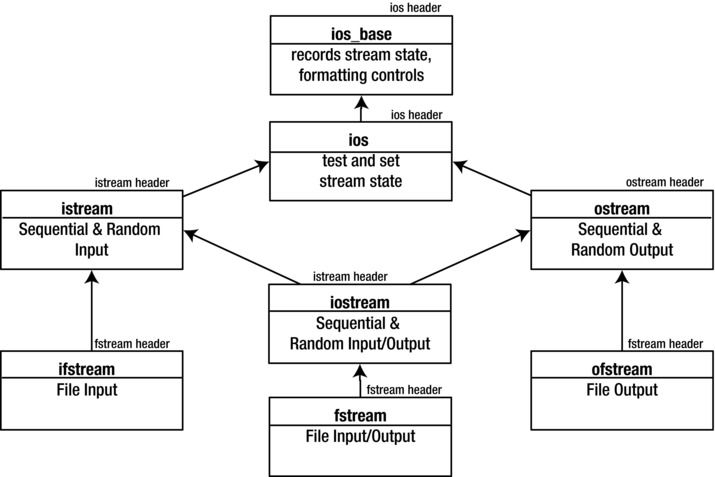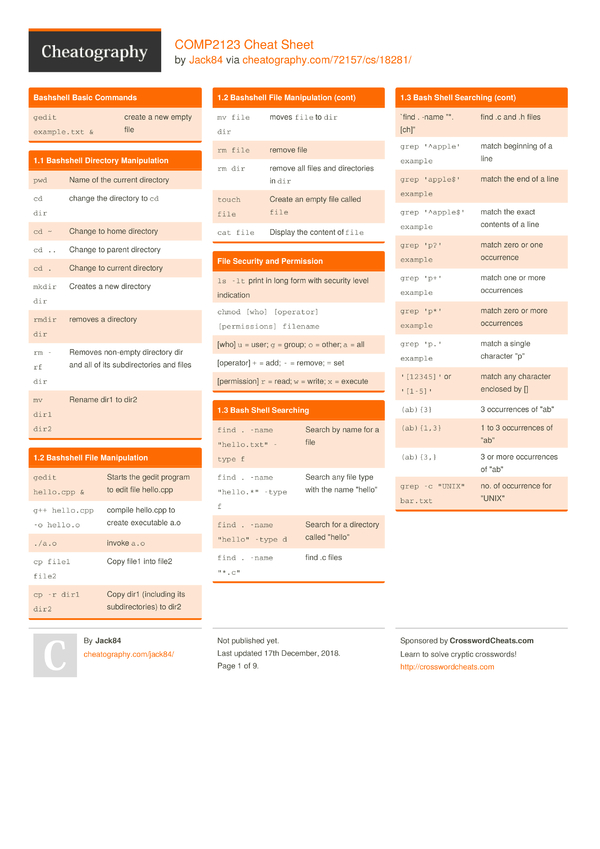- C%2b%2b Ostream Dev Null
- C 2b 2b Ostream Dev Null Test
- C 2b 2b Ostream Dev Null Command
- C 2b 2b Ostream Dev Null Code
- C 2b 2b Ostream Dev Null Key
To define the ostream class in C sources, the ostream header file must be included. To use the predefined ostream objects (std::cerr, std::cout etc.) the header file must be included. 6.4.1.1: Writing to `ostream' objects The class ostream supports both formatted and binary output.
这个问题已经在这里有了答案:
9年前关闭。
- Returns a quiet NaN (Not-A-Number) value of type double. The NaN values are used to identify undefined or non-representable values for floating-point elements, such as the square root of negative numbers or the result of 0/0.
- You can then use this buffer in any ostream class. NullBuffer nullbuffer; std::ostream nullstream(&nullbuffer); nullstream.
Possible Duplicate:
Implementing a no-op std::ostream
在c++中是否有与NULL等价的流?我想编写一个函数,如果用户希望将内部输出输出到某个地方,则将其带入一个流中,但是如果没有,则输出进入某个伪造的地方
我希望能够选择执行
data()或data(std::cout)编辑:取自@Johannes Schaub-litb的邮件here,稍作修改:
使用这些:
现在,这看起来很酷,但是下面的代码更短并且更有效,因为如果将空指针提供给ostream的构造函数,它将自动设置Badbit并静默忽略任何写操作:
该标准从27.6.2.2 [lib.ostream.cons] p1开始,保证了它的工作,ostream描述了streambuf的构造函数,该构造函数采用指向basic_ios的指针:
Effects: Constructs an object of class basic_ostream, assigning initial values to the base class by calling basic_ios<charT,traits>::init(sb).
来自
27.4.4.1 [lib.basic.ios.cons] p3,badbit的相关功能:void init(basic_streambuf<charT,traits>* sb);
Postconditions: The postconditions of this function are indicated in Table 89:
表89中的重要行:
rdstate() -- goodbit if sb is not a null pointer, otherwise badbit.
如果设置了
27.6.2.6 [lib.ostream.unformatted],将在sentry下进行描述:Each unformatted output function begins execution by constructing an object of class sentry. If this object returns true, while converting to a value of type bool, the function endeavors to generate the requested output.
这意味着,如果
sentry为假,则不是。这是bool转换为27.6.2.3 [lib.ostream::sentry] p3 & p5的方式,取自ok_ :
:3) If, after any preparation is completed, os.good() is true, ok_ true otherwise, ok_ false.
5) operator bool();
Effects: Returns ok_.
(
ostream::sentry
C%2b%2b Ostream Dev Null
是bool类型的27.6.2.2 [lib.ostream.cons] p1的成员。)请注意,这些引号在C++ 11中仍然存在,只是在不同的位置。为了在这个答案中出现:
27.7.3.2 [ostream.cons] p1 =>27.4.4.1 [lib.basic.ios.cons] p327.5.5.2 [basic.ios.cons] =>27.6.2.6 [lib.ostream.unformatted]27.7.3.7 [ostream.unformatted] p1 =>27.6.2.3 [lib.ostream::sentry] p3 & p527.7.3.4 [ostream::sentry] p4 & p5 => ojit_code | Language | ||||
| Standard Library Headers | ||||
| Freestanding and hosted implementations | ||||
| Named requirements | ||||
| Language support library | ||||
| Concepts library(C++20) | ||||
| Diagnostics library | ||||
| Utilities library | ||||
| Strings library | ||||
| Containers library | ||||
| Iterators library | ||||
| Ranges library(C++20) | ||||
| Algorithms library | ||||
| Numerics library | ||||
| Localizations library | ||||
| Input/output library | ||||
| Filesystem library(C++17) | ||||
| Regular expressions library(C++11) | ||||
| Atomic operations library(C++11) | ||||
| Thread support library(C++11) | ||||
| Technical Specifications |
| I/O manipulators | ||||
| C-style I/O | ||||
| Buffers | ||||
(deprecated in C++98) | ||||
(C++20) | ||||
| Streams | ||||
| Abstractions | ||||
| File I/O | ||||
| String I/O | ||||
| Array I/O | ||||
(deprecated in C++98) | ||||
(deprecated in C++98) | ||||
(deprecated in C++98) | ||||
| Synchronized Output | ||||
(C++20) | ||||
| Types | ||||
| Error category interface | ||||
(C++11) | ||||
(C++11) |
| Global objects | ||||
| Member functions | ||||
(C++11) | ||||
| Formatted output | ||||
| Unformatted output | ||||
| Positioning | ||||
| Miscellaneous | ||||
(C++11) | ||||
| Member classes | ||||
| Non-member functions |
basic_ostream& operator<<(short value ); basic_ostream& operator<<(unsignedshort value ); | (1) | |
basic_ostream& operator<<(int value ); basic_ostream& operator<<(unsignedint value ); | (2) | |
basic_ostream& operator<<(long value ); basic_ostream& operator<<(unsignedlong value ); | (3) | |
basic_ostream& operator<<(longlong value ); basic_ostream& operator<<(unsignedlonglong value ); | (4) | (since C++11) |
basic_ostream& operator<<(float value ); basic_ostream& operator<<(double value ); | (5) | |
| (6) | ||
basic_ostream& operator<<(constvoid* value ); | (7) | |
| (8) | (since C++17) | |
basic_ostream& operator<<(std::basic_streambuf<CharT, Traits>* sb); | (9) | |
basic_ostream& operator<<( std::ios_base&(*func)(std::ios_base&)); | (10) | |
basic_ostream& operator<<( std::basic_ios<CharT,Traits>&(*func)(std::basic_ios<CharT,Traits>&)); | (11) | |
basic_ostream& operator<<( std::basic_ostream<CharT,Traits>&(*func)(std::basic_ostream<CharT,Traits>&)); | (12) |
Inserts data into the stream.
value is short or int, then casts it to unsignedshort or unsignedint if ios_base::flags()& ios_base::basefield is ios_base::oct or ios_base::hex. After that, casts to long in any case and outputs as in (3). If value is unsignedshort or unsignedint, casts to unsignedlong and outputs as in (3).*this << s, where s is a null-terminated character type string.sb is a null pointer. If it is, executes setstate(badbit) and exits. Otherwise, extracts characters from the input sequence controlled by sb and inserts them into *this until one of the following conditions are met:- end-of-file occurs on the input sequence;
- inserting in the output sequence fails (in which case the character to be inserted is not extracted);
- an exception occurs (in which case the exception is caught).
C 2b 2b Ostream Dev Null Test
If no characters were inserted, executes setstate(failbit). If an exception was thrown while extracting, sets failbitC 2b 2b Ostream Dev Null Command
and, iffailbit is set in exceptions()C 2b 2b Ostream Dev Null Code
, rethrows the exception.[edit]Parameters
| value | - | integer, floating-point, boolean, or pointer value to insert |
| func | - | function to call |
| sb | - | pointer to the streambuffer to read the data from |
[edit]Return value
[edit]Notes
There are no overload for pointers to non-static member, pointers to volatile, or function pointers (other than the ones with signatures accepted by the (10-12) overloads). Attempting to output such objects invokes implicit conversion to bool, and, for any non-null pointer value, the value 1 is printed (unless boolalpha was set, in which case true is printed).
Character and character string arguments (e.g., of type char or constchar*) are handled by the non-member overloads of operator<<. Attempting to output a character using the member function call syntax (e.g., std::cout.operator<<('c');) will call one of overloads (2-4) and output the numerical value. Attempting to output a character string using the member function call syntax will call overload (7) and print the pointer value instead.
[edit]Example
Output:
C 2b 2b Ostream Dev Null Key
[edit]See also
| inserts character data (function template)[edit] | |
| performs stream I/O of strings (function template) | |
| performs stream input and output of bitsets (function) | |
| serializes and deserializes a complex number (function template) | |
| performs stream input and output on pseudo-random number engine (function template)[edit] | |
| performs stream input and output on pseudo-random number distribution (function template)[edit] | |
| inserts a character (public member function)[edit] | |
| inserts blocks of characters (public member function)[edit] | |
(C++17) | converts an integer or floating-point value to a character sequence (function)[edit] |